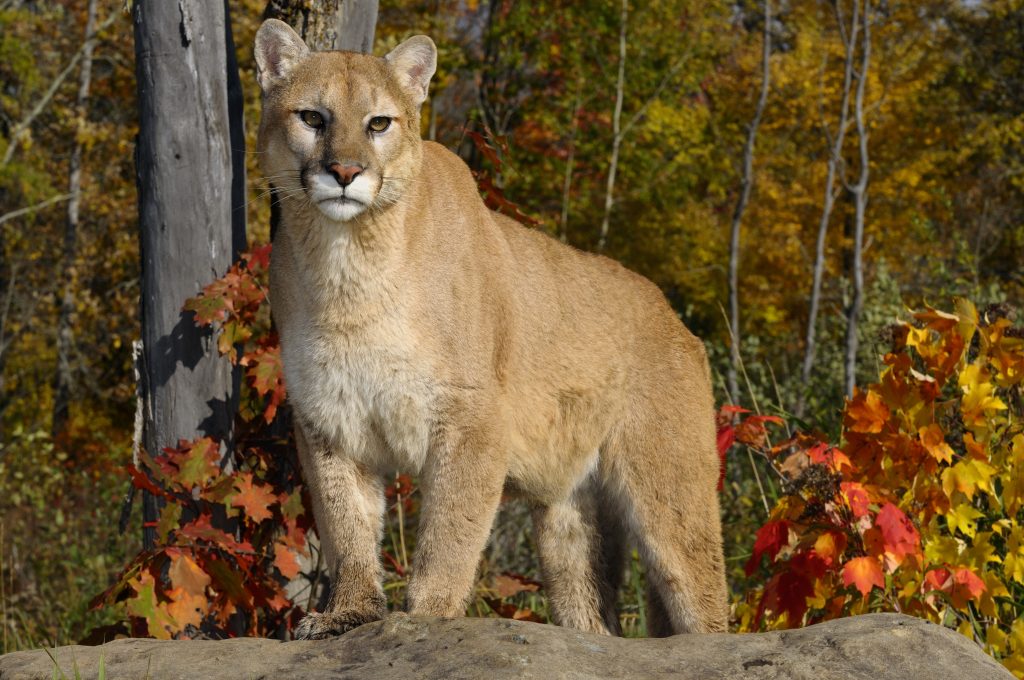‘We do need to harvest’: Alberta government expands cougar hunting areas, quotas

The Alberta government has created six new areas where cougar hunting is allowed, including inside a provincial park.
Forestry and Parks Minister Todd Loewen says the government estimates Alberta’s cougar population has reached about 2,000, while an ideal population is 1,500.
He says he doesn’t want to see cougars overhunted, but some “harvesting” is needed.
Advertisement
“The cougar populations have expanded,” Loewen said Tuesday.
“We definitely don’t want to get into a situation where we over harvest, but we do need to harvest across the broad landscape where the cougars exist.”
All but one new zone cover the largely forested area northwest of Edmonton that separates Grande Prairie and High Level. The last new zone covers the area including and surrounding Cypress Hills Provincial Park, about 360 kilometres southeast of Calgary.
Loewen said these areas, which include parts of his Central Peace-Notley riding, are where the big cats are starting to appear more commonly.
The government also increased the cougar hunting quota for the 2023-2024 hunting season by more than doubling the limit on female cougars to 72.
Advertisement
A spokesperson for Loewen did not immediately respond to a question about when the cougar hunting quota for this season would be published.
Alberta Wilderness Association conservationist Ruiping Luo said she’s concerned the government has expanded cougar hunting opportunities without transparent reasoning.
“I can’t verify those numbers,” Luo said of Loewen’s cougar population estimate, adding she’s been asking the government for its data since the summer to no avail.
“We were told that some people believe cougar numbers are unacceptably high, but we weren’t shown where that was coming from.”
Luo said it’s concerning the government has expanded hunting opportunities again without clear scientific justification.
Advertisement
Last month, Loewen said his ministry had removed trapping limits on fur-bearing animals, like wolverines and lynx, because existing data wasn’t strong enough to justify the limitations.
One of the last reliable estimates of Alberta’s wolverine population, completed in 2003, found there were less than 1,000 breeding ones left.
Loewen said last month that removing trapping limits would allow the government to get a better idea of how many wolverines are now in the province by relying on logs and data kept by trappers.
After that data is gathered, in a year or two, Loewen said the government would be in a position to recalculate what a responsible trapping limit would be.
Luo was critical of that decision as well, saying at the time she thought the government should take a more cautionary approach, as getting a new population estimate should happen before making changes to trapping limits.
Advertisement
When it comes to the cougar hunting changes, Luo said she has the same concern.
“I feel like I’m repeating myself,” she said.
“It’s really concerning that Alberta seems to continuously be opened up to more and broader hunting and that a lot of these decisions don’t seem to have scientific justification. We don’t understand the reasoning behind them, and there hasn’t been public consultation.”
The Opposition NDP’s environment and protected areas critic, Sarah Elmeligi, said she was highly frustrated by the trapping and cougar limit changes.
“It is very, very unusual to allow for hunting in provincial parks,” said Elmeligi, who holds a PhD in interdisciplinary conservation science.
Advertisement
“My biologist colleagues and I are extremely dismayed that decades of data is not feeding into decisions about how to manage wildlife populations in Alberta.”
Loewen, who prior to being elected owned and operated a hunting outfitting company, said he’s likely more passionate about hunting than many. But he said the government needs to have data to defend hunting limits.
“If we want people to have confidence in a management system, we have to have data … and quotas that we can defend,” he said.
“I have people asking me questions. And if I don’t have a good answer then I think we need to change something.”
